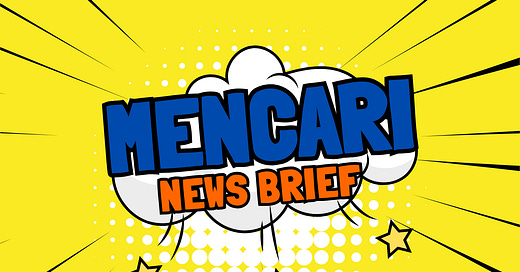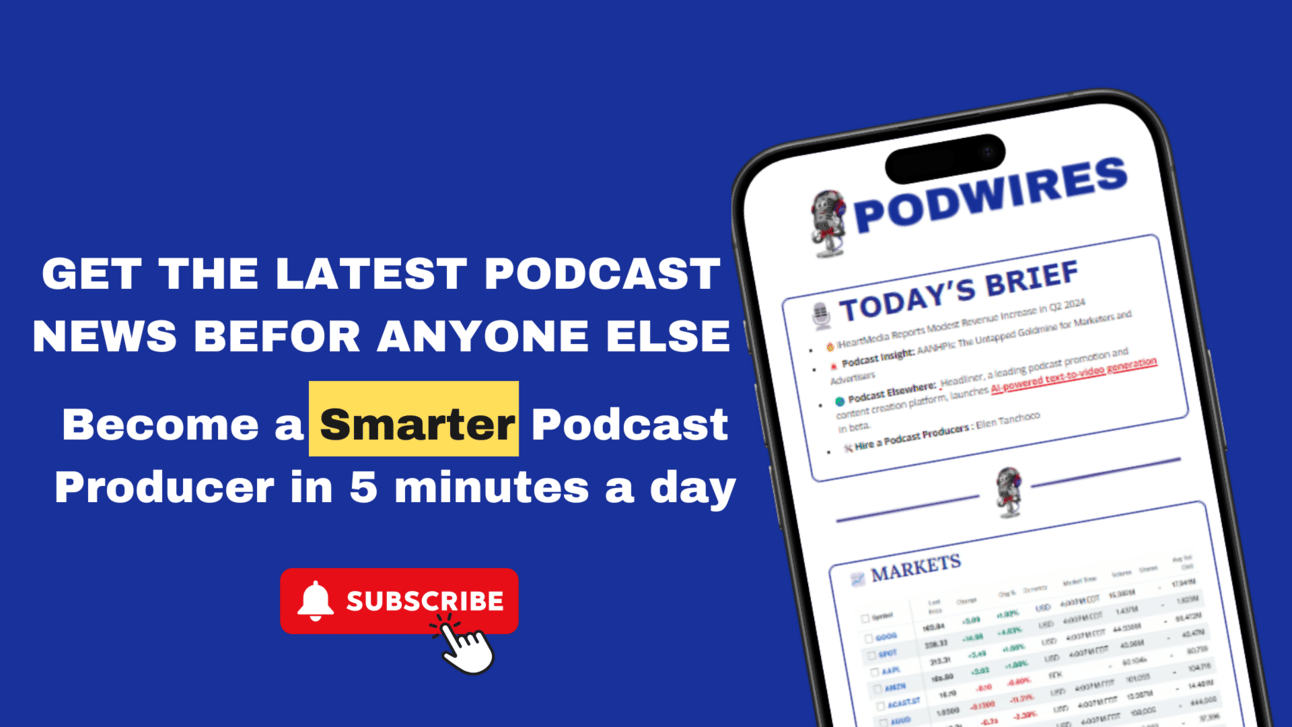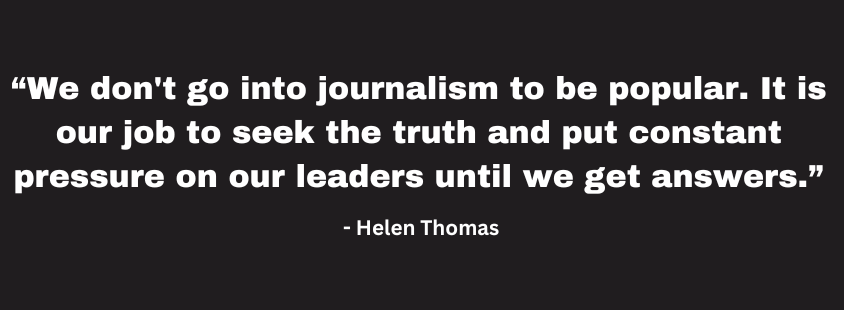US Tariffs Leave Markets in Disarray: See How Global Leaders Reacted and Why Aussie Beef Earned Trump's Ire
Good morning. It’s April 5 and the world is scrambling to find a way out of the Trump administration’s sweeping tariffs on goods.
No one outside the US appears to like the new policy, with businesses bemoaning the new rates’ impact on their products. Even back at home, American companies are finding ways to offset the impact of the tariffs given how global supply chains operate.
While some representatives from the Trump camp argue that this is a case of “it gets worse before it gets better,” economists are bracing for the potential impact on growth and inflation. For now, the situation remains fluid and here’s how markets are reacting.
Join over 1000 readers. Sign up here.
We'd love it if you could share the email with your friends! Just (copy the URL here.
Today's reading time is 7 minutes. - CJ
MARKET CLOSE
Presented by CommSec
Trump's tariffs drove ongoing falls in global share markets. Just since June 2022, the ASX 200 index suffered its worst weekly loss ever.
Trump Imposes 10% Tariff on Australia, Singles Out Aussie Beef in Rose Garden Speech
The Trump administration has slapped a 10% across-the-board tariff on imported goods from Australia as part of sweeping measures meant to boost American companies and address the US’ trade shortfalls with other countries. This is the minimum baseline rate, which on paper appears to be a better deal than what was given to other countries. But given how global supply chains operate, Australian businesses are still expected to bear the brunt. China, where many factories are located, could suffer from as much as 54% tariffs.
In his Rose Garden speech early Thursday morning, US President Donald Trump lashed out on Australia’s ban on American beef. Australia has had a ban on imported beef from the US for more than 20 years in the wake of the mad cow disease. While Prime Minister Anthony Albanese fell short on ordering reciprocal measures, he denounced the US’ decision and said it had “no basis in logic” and that it was “not the act of a friend.”
Retail Sales Rise in February But Growth Eases
Australian retail turnover increased by 0.2 percent in February 2025, following a 0.3 percent rise in January and a 0.2 percent decline in December 2024, according to seasonally adjusted figures released today by the Australian Bureau of Statistics (ABS). The modest growth was primarily driven by food-related sectors, with food retailing rising 0.6 percent and cafes, restaurants, and takeaway food services increasing 0.2 percent for the second consecutive month.
Non-food industries displayed mixed performance, with other retailing falling 1.0 percent after posting the largest January increase of 2.4 percent. Household goods retailing declined 0.3 percent for the second straight month, which ABS head of business statistics Robert Ewing attributed to moderated spending following promotion-based growth in the December quarter.
These decreases were partially offset by gains in department stores (1.5 percent) and clothing, footwear, and personal accessory retailing (0.4 percent). Geographically, Western Australia led state-level growth with a 0.8 percent increase, marking its seventh consecutive monthly rise, followed by New South Wales at 0.5 percent.
Hackers Target Retirement Funds
A sophisticated cyber heist targeting Australia's superannuation sector has resulted in the theft of $500,000 from four AustralianSuper members, according to reports released today.
The coordinated credential-stuffing attack affected several major funds managing nearly $1 trillion in retirement savings, including REST, HostPlus, AustralianSuper, Australian Retirement Trust, and Insignia. REST identified 8,000 affected accounts, while AustralianSuper reported 600 compromised passwords and Insignia confirmed 100 targeted accounts. The cybercriminals strategically executed the attack during early morning hours when account monitoring activity is typically minimal.
The incident represents a significant shift in cybercriminal tactics, now directly targeting Australians' retirement assets despite robust security measures at these well-regulated financial institutions.
Prime Minister Anthony Albanese noted that cybercrime occurs every six minutes in Australia, highlighting the essential need for password hygiene and multi-factor authentication to protect financial assets. Most affected funds have locked compromised accounts and are collaborating with government cybersecurity officials to address vulnerabilities. Industry experts anticipate this breach will accelerate the implementation of enhanced security protocols across the financial sector and prompt regulatory reviews of cybersecurity requirements for institutions managing retirement savings.
SPONSORED BY PODWIRES NEWS
Stay ahead of the curve with breaking news and insights, and tap into freelance marketplace opportunities tailored for podcast producers like you.
SUPPORT MENCARI
We're so grateful to our wonderful readers who make it possible for us to reach more than 1,000 inboxes with our fact-focused news. The Mencari - Banking Beacon Insights (formerly Evening Post AU) readers are so important to us because they help us to continue spreading the word without any financial or political influence.
Business & Markets
➡️ Global markets falter from Wall Street to Asia as investors absorb the impact of the new US trade policy. The Trump administration’s reciprocal tariffs, which it claims are already discounted, roiled global markets. On April 3, the Nasdaq Composite plunged 6%, the S&P 500 tumbled 4.8%, and the Dow Jones Industrial Average fell 4%. It was also a sea of red in Europe, with France’s CAC 40 and the German DAX down over 3% each. London’s FTSE 100 lost 1.6%. In Asia-Pacific, the ASX 200 finished 2.4% lower on April 4, the NZX 50 lost 0.9%, and the Shanghai SSE was little changed.
➡️ New Zealand’s policy-setters will continue their easing spree as emerging tariff uncertainties cloud the economic recovery. Markets are pricing in a 25-basis point rate cut from the Reserve Bank of New Zealand (RBNZ) on April 9, which would mark its fifth straight easing. A Reuters poll among 27 economists expects the central bank to lower the cash rate to 3.50% in line with previous communication from policy-setters in February. This is the bank’s first policy decision since the abrupt resignation of former RBNZ Governor Adrian Orr, who formally stepped down on March 31. While signs of economic recovery are starting to emerge, the central bank would have to contend with the sharp swings in geopolitical developments and their impact on inflation. Like Australia, New Zealand has pledged no retaliatory tariffs on American imports.
➡️ The world’s 1% has just gotten even richer. On April 1, Forbes unveiled its annual billionaires list featuring a who’s who of the world’s richest people. Unsurprisingly, Tesla’s Elon Musk - who has a newfound spotlight as Trump’s unofficial right hand - emerged as the world’s top billionaire, having grown his coffers to a whopping $378.1 billion. Tech guys completed the magic three, with Amazon’s Jeff Bezos and Facebook’s Mark Zuckerberg amassing $196.2 billion and $184.1 billion in respective net worths. In Australia, mining magnate Gina Rinehart has retained the crown as the richest person, with a net worth of $29.3 billion.
Politics & World Affairs
➡️ Leaders from across the world have reacted to the Trump administration’s new tariffs, with responses that range from verbal denouncements to actual threats of reciprocal levies. The European Union said it is preparing countermeasures to the 20% levy on US exports. China called Washington’s 54% tariffs an act of “bullying,” but fell short of specifying its countermeasures. Both Australia and New Zealand also lambasted the decision, but said they will not impose retaliatory tariffs.
➡️ With only a month left before the federal elections, the Albanese government and the opposing Coalition party have each pledged their election sweeteners in a bid to woo voters. The Labor government announced significant funding for hospitals and medical training amid public discontent over the current healthcare system. Meanwhile, Peter Dutton’s Coalition pledged support for infrastructure on the back of a brewing housing crisis.
➡️ Israel is planning to seize parts of Gaza after a brief pause on airstrikes. Israeli Defense Minister Israel Katz escalated military operations in Gaza with plans to seize “large areas” of land for integration into Israel's security zones, media outlets reported on April 2. The Israeli military urged residents in the Rafah area to evacuate northward for their safety. Prime Minister Benjamin Netanyahu further affirmed the military's intensified efforts, promising to maintain pressure on Gaza until all hostages are freed. The latest escalation follows the resumption of attacks on Gaza after a short-lived ceasefire.
AI & Technology
➡️ Meet the Hypernova glasses from Meta. Ready for a handset that is, well, totally hands-free? Meta is working on new smart glasses that could rival the iPhone, Bloomberg News reported on April 1. The device will have a screen — a first for the company — enabling it to rival the features of Apple’s smartphones line. Other features include hand-gesture controls, as well as a screen where users can view photos and apps. Meta plans to launch the new glasses as early as end-2025, according to the report.
➡️ The Studio Ghibli memes are melting GPUs! It’s been over a week since OpenAI released the GPT-4o model, an updated image generation service with an eerie level of accuracy and precision. And while the feature opens up a whole new level of opportunities in graphics design — and maybe a can of worms in terms of copyright and ethics issues — it became viral for having the ability to recreate Studio Ghibli art. As a result, OpenAI Sam Altman said the demand has sent their GPUs melting. While that may have been a joke, the demand is not. ChatGPT did receive up to one million users in one hour at one point.
➡️ TikTok is racing against time as the US deadline on break-up looms. With the clock ticking, Amazon reportedly made a last-minute offer to buy TikTok. The short video-sharing platform must find a buyer by April 5 or face a ban in the US. In an 11th hour ditch, Amazon made an offer letter addressed to US Vice President JD Vance and Commerce Secretary Howard Lutnick, the New York Times reported on April 2, citing three people familiar with the matter. Meanwhile, the Trump administration is said to be exploring ways to prevent another ban on TikTok by leasing the app to a US company while China keeps control of the algorithm, ABC News reported on April 4.
📖 I appreciate you taking the time to read! See you in the next issue. Got a question or criticism? Just click on Reply. We can talk while we are here.
🎧 Check out our podcast, the one and only "The Expert Interview." This podcast seeks the truth to answer the most pressing questions using the highest journalistic standards
✍️ Give us a press release and a good-sized landscape photo. Make sure it's newsworthy. Send press releases to newsdesk@readmencari.com or click here. Editorially, we may rewrite headlines and descriptions.
🚀 Got a news tip ? Contact our editor via Proton Mail encrypted, X Direct Message, LinkedIn. You can securely message him on Signal by using his username, Miko Santos.
The Mencari readers receive journalism free of financial and political influence.
We set our own news agenda, which is always based on facts rather than billionaire ownership or political pressure.
Despite the financial challenges that our industry faces, we have decided to keep our reporting open to the public because we believe that everyone has the right to know the truth about the events that shape their world.
Thanks to the support of our readers, we can continue to provide free reporting. If you can, please choose to support The Mencari.














